Humans have certainly made progress in this digitized age. From asking questions like what artificial intelligence (AI) is, why we need artificial intelligence, and is artificial intelligence going to overtake the world, we have welcomed the use of artificial intelligence (think Siri, Alexa, and self-driven cars).
In the field of business, artificial intelligence has generated improvements to almost every business process. Recruitment teams across industries are especially happy with the shift in workload to artificial intelligence. AI interviews are becoming increasingly common with corporate giants such as Cognizant, HCL, OCBC Bank, HDFC Bank, Sephora, and AT&T using AI to take over at least a part of their recruiting processes.
A few definitions that may help you through this article:
Artificial intelligence:
Computer systems that can perform tasks that normally would require human intelligence.
Chatbot:
An artificial intelligence feature that is short for “chatterbot.” A chatbot is a software or program that simulates human conversations through voice commands and text chats.
Natural language processing (NLP):
The interaction between humans and computers using natural language. AI’s machine learning skills derive meaning and understanding from language as it is spoken by humans.
How does AI interviewing work?
We know that artificial intelligence makes use of machine learning to mimic human intelligence. This (artificial) intelligence uses its intellection in the recruiting of new hires and analyzes job applicants to find the best candidate for the job. Natural language processing, chatbots, sentiment analysis, facial expression recognition and visual perception, speech recognition, tone analysis, and decision-making are artificial intelligence features used in the AI interviewing process.
Recruitment of a new hire for a particular job post happens in stages. The initial stages of this process are entirely taken over by artificial intelligence. A typical recruitment process involving artificial intelligence goes like this:
Automated CV parser or Resume Shortlisting
Artificial intelligence enabled Resume parsers sifts through and analyzes job applicants’ CVs and selects the best candidates for the job. It also pulls out applicants from the past if it believes they will be a good fit for the job based on the required skills and responsibilities.
You might think!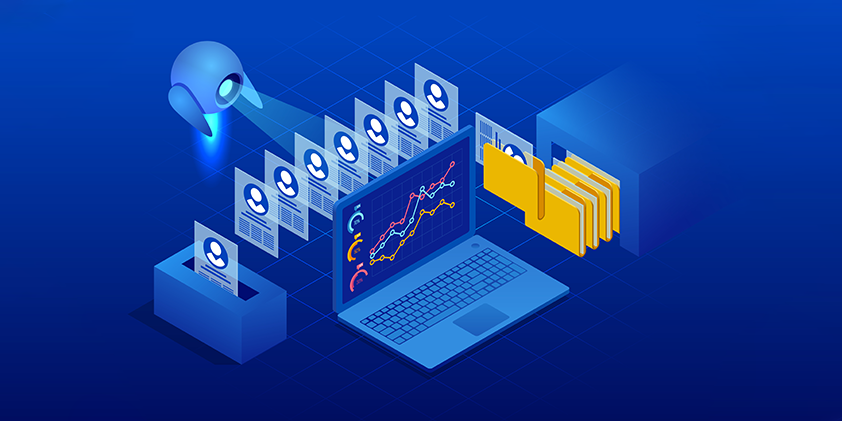
What is the difference between a Resume Parser or AI Enabled Resume Parser?
Resume Parser
Conventional Resume Parsers helps recruiters to convert a free-form resume document into structured information which would be suitable for
- Storage
- Reporting
- Analysis
AI Enabled Resume Parsing technology
A Trained, AI resume parser identifies the most suitable candidates for a job requirement based on industry trends and company hiring patterns.
Chatbot Screening
How can chatbots or recruitment help you screen candidates in the initial stages?
- Chatbots answer initial questions that interested candidates have related to the job post – such as the number of positions available, the day, date and time of interviews, salary offered, qualifications required, and so on
- Chatbots are used to conduct preliminary qualification questions or ‘pre-screening’ for the job. The answers are instantly analyzed by artificial intelligence, and the best candidates are immediately chosen for the next round of the AI interview.
- Immediate feedback is provided to candidates, as well as suggestions for the next steps. Candidates who get through the pre-screening round are invited to take part in the next stage - the AI interview. AI also finds other opportunities within the company for candidates who are unsuitable for this specific job.
Some of the mundane tasks which Chatbots can do on its own
- Suggesting suitable jobs to candidates
- Collection of information about candidates apart from the one in the resume
- Screening and initial interview
- Analysis of Writing skills of the candidates.
- Updating applicants about the information on the hiring process
- Background checks
- Answering candidate’s queries proactively
If you are a recruiter, you know how recruitment processes can be very tedious and time-consuming, especially when you are dealing with high volume candidates, screening with chatbots can make it a lot easier than you can ever imagine. The recruitment process can be automated as much as 75%, making the lives of job seekers and recruiters easier.
Check out! Talview' Recruitment Chatbot.
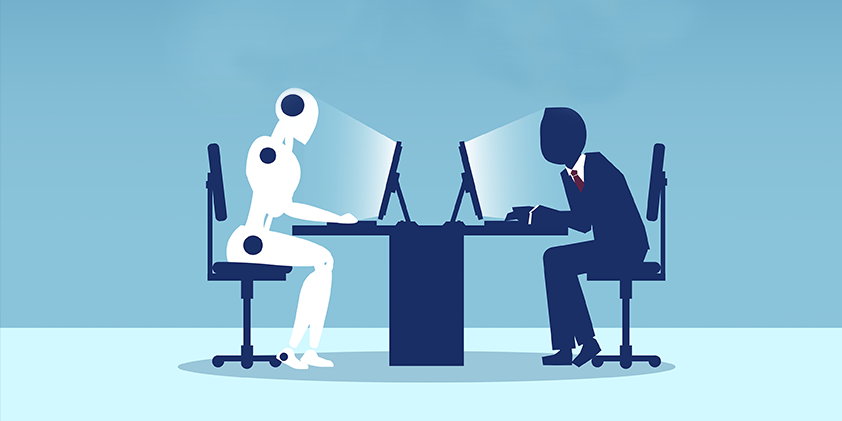 AI video interview stage
AI video interview stage
Before we jump into AI video interviewing or robotic video interviews, what is video interviewing? A video interview is a job interview that is conducted remotely that uses video technology as its primary medium of communication.
What if Video interviewing platform is trained with Artificial Intelligence and Machine Learning? A powerful interview evaluation technology that helps recruiters to reduce the efforts of interviewers.
How does it work?
Artificial intelligence trained video interviewing technology analyzes facial features, moods, expressions, and intonations of the interviewees to select the most suitable candidates. Speech recognition, personality insights, tone analysis, the relevance of answers, emotional recognition, and psycholinguistics are used in this hiring process that uses technology automation. The best matches are shared with human recruiters along with AI’s own notes on individual candidates.
.png?width=5632&name=2019-06-25%20(1).png)
From this point on, human recruiters take over the recruitment process.
With all the unsuitable candidates sifted and filtered out of the way, human recruiters have only the most suitable candidates to consider. This how most of the AI interviewing technology works, While we at Talview built an Interviewing technology called Warmpool as part of InstaHring, the candidates who were filtered out for the specific Job position, might be suitable for other positions or suitable for future positions at the same organization. The Talview engage system keeps these candidates nurture and engage regularly. The recruiters don’t have to start the screening process from scratch; these candidates are directly taken to the final stage of interviews. This will help recruiters to hire the right candidates in the shortest time. Isn’t it amazingly useful?
What recruitment challenges you can solve with AI Interviewing?
Hiring faster is a key challenge for recruiters and businesses. Most of the recruitment teams and businesses follow Time to Hire as the North star metric to define the efficiency of a TA function. Time to hire is important in itself as you always need candidates like yesterday but also plays a big role in shaping other key metrics such as candidate experience, quality of hire, and cost of hire.
Few facts that you should be aware:
- Quality of Hire: A good candidate today is available in the market only for 10 days. If you have a 2 months long hiring process, your ability to hire the best candidates is significantly limited.
- Candidate Experience: 6 out of 10 candidates who drop off the funnel attribute that to a long hiring process.
- Cost of Hire: It costs an average of USD 4000 for every new hire. The cost increases with the time you spent.
Most of the organizations are using AI interviewing technology to hire faster and better with minimal human intervention.
Talview uses Instahiring methodology to help organizations to reduce the time to hire, from months to hours. The Instahiring Platform makes this possible through a combination of three techniques- automation of routine tasks, enabling anytime-anywhere processes, and capturing & reusing data across the hiring process. This is enabled by AI-enabled video interviewing, cognitive remote proctoring and advanced assessments, that leverage the best in class NLP, Machine Learning, Computer Vision, and Video Analytics capabilities.
The stages that are included in the Instahiring cycle:
- Automated Screening
- Live Interviewing
- Intelligent Selection
- Offer
- Onboarding
Know more about InstaHiring!
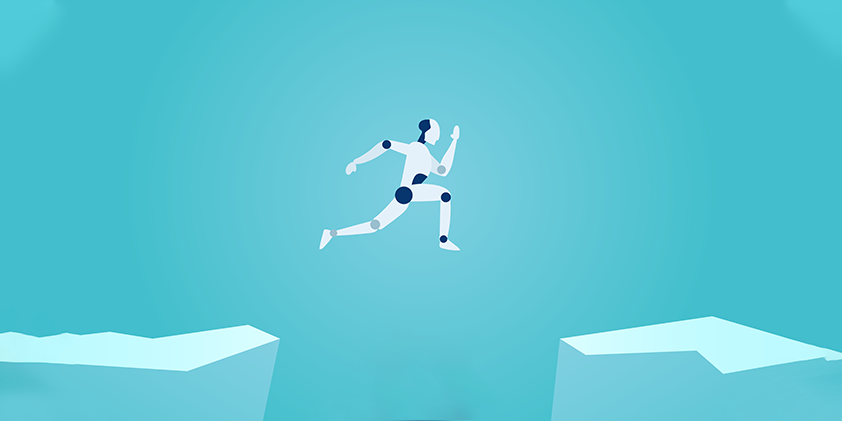 Business advantages of an AI video interview
Business advantages of an AI video interview
When a famous Multinational FMCG company turned to AI interviewing to hire entry-level employees, the difference between the human recruitment process and the AI interview process was glaringly apparent.
- Job applications doubled within 90 days from 15,000 to a whopping 30,000
- The average time to hire a candidate dropped from 4 months to 4 weeks
- Human recruiters spent 56% less time on applications
- Offers to candidates who got through the final round jumped from 64% to 82%
- There was a 10% increase in hiring of non-white candidates
When a leading healthcare consulting company experimented with machine interviews, they were able to do the following:
- Interview over 9000 candidates in 75 days
- Drastically reduce the interview time per candidate from an initial 45 minutes
- Reduce the number of rounds of interviews per candidate
- Enhance the branding of the organization
Here are some more advantages of AI interviewing:
- Through the process of AI interviewing, more candidates are interviewed in less time. The remote interview helps in receiving talent from across the globe.
- Artificial intelligence conducts a deeper and more thorough analysis of candidates through sentiment analysis, facial expression recognition, and visual perception, and can determine if a particular personality will fit the job.
- An AI video interview software prevents intended or unconscious biases that often prevent a fair recruitment process. Affinity bias, gender bias, school bias, and racial bias are some of the biases that are thrown out the window with AI interviewing.
- Businesses end up having a more ethnically diverse talent group when artificial intelligence is in charge of the initial stages of the recruiting of new hires.
- Businesses have a more socioeconomic diverse group when artificial intelligence is in charge of the initial stages of the recruiting of new hires.
- Candidates can get the answers instantly, at any time. This reduces the need for recruiters to respond to emails and phone calls without spoiling the recruitment experience for the candidate.
AI interviewing advantage for candidates
It’s not just organizations who benefit from the AI video interview process; candidates find this unique interview process convenient.
- An AI video interview software allows candidates to express themselves more clearly.
- AI interviews can be conducted anytime and anywhere.
- AI interviews can be done via the candidate’s tablet or smartphone.
- Some organizations allow candidates to practice sample questions before the actual AI video interview to give them a chance to get familiar with the AI interview process.
- It’s not just elite colleges that candidates are selected from but from lesser-known colleges as well. When Unilever let AI take over the pre-hiring stage of the recruitment process, there was a jump from 840 to 2,600 universities represented.
- When job candidates can get answers, responses, and information they need quickly and easily, the positive experience increases the enthusiasm to work for you.

Disadvantages of AI interviews
With the good comes the not-so-good. Experts are concerned about how an AI interview can mar the chances of bagging a job for some candidates.
Word has got around that AI’s sentiment analysis, facial expression recognition, visual perception, and speech recognition features are close to accurate. According to facial recognition experts, candidates who are aware of this become self-conscious during the interview process.
During an AI video interview, candidates are apprehensive about how artificial intelligence will analyze their nervous tic or smile, or perhaps the lift of an eyebrow. This apprehension is a cause of distress that becomes apparent in the AI interview process and can affect the overall results.
Moods vary according to circumstances. A headache, a painful breakup, or even the death of a loved one can lead to a temporary setback to one’s otherwise sunny disposition. During a human interaction, candidates can explain the situation to the interviewer who will consider the situation. This is not possible in an AI video interview.
Physical scarring of the face, such as a stroke, facial scarring, and even a recent Botox injection, can modify facial expressions. A human interviewer would take all this into account, while artificial intelligence isn’t capable of such considerations.
How Talview's AI interviewing software works
Talview
Talview conducts AI interviews through high-performance native apps for both iOS and Android. Candidates can take up the interview on their smartphones or iOS devices, even in areas with low internet bandwidth. It has multi-language capabilities. Its most innovative feature is the AI-enabled Talview Behavioral Insights (TBI) engine. TBI was developed by a team of experts from the industry including organizational psychologists who created job suitability reports, development guides and interview questionnaires.
Talview Behavioral Insights (TBI) is the world’s first hiring cognitive technology that uses NLP, tone analysis, video interviews, and psycholinguistics. A candidate’s profile is built by using their natural speech pattern during the interview. The TBI eliminates the need for candidates to take additional behavioral assessments. The TBI engine analyses the subtext of a video or written interview and sees through fake responses. With self-learning capabilities, TBI can calibrate the reporting to suit the needs of the organization or even a specific team within an organization.
TBI Behavioral Report
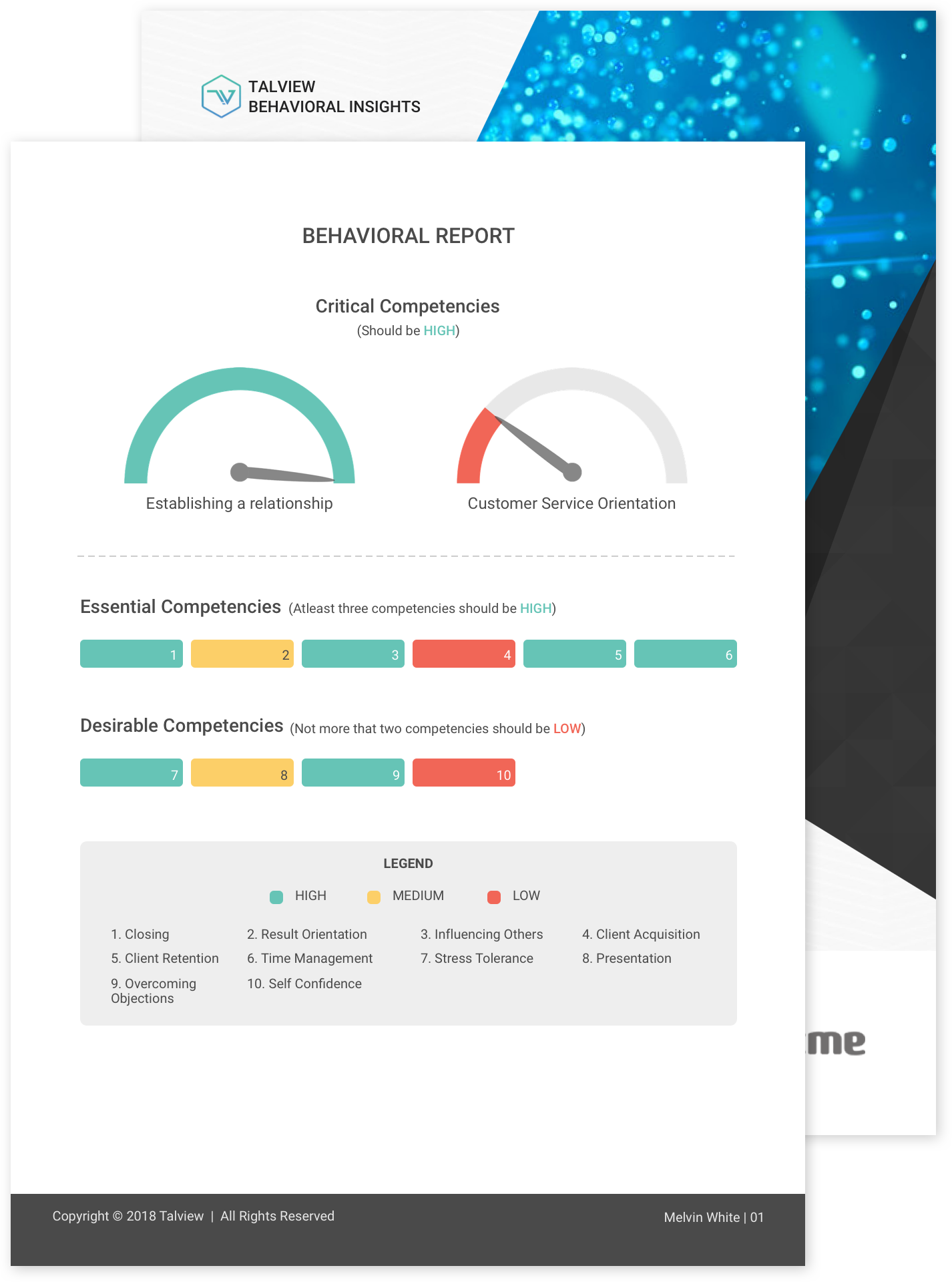
AI video interview questions
Talview has made the process of AI interviewing easier for candidates by providing instructions on what type of questions to prepare for, as well as how to prepare for an AI video interview. While organizations determine their questions, there are some common questions that candidates can expect:
- Tell me a little about yourself.
- What are your long-term career goals?
- Why did you leave your previous job?
- What are your strengths and weaknesses?
- Why do you want to work with us?
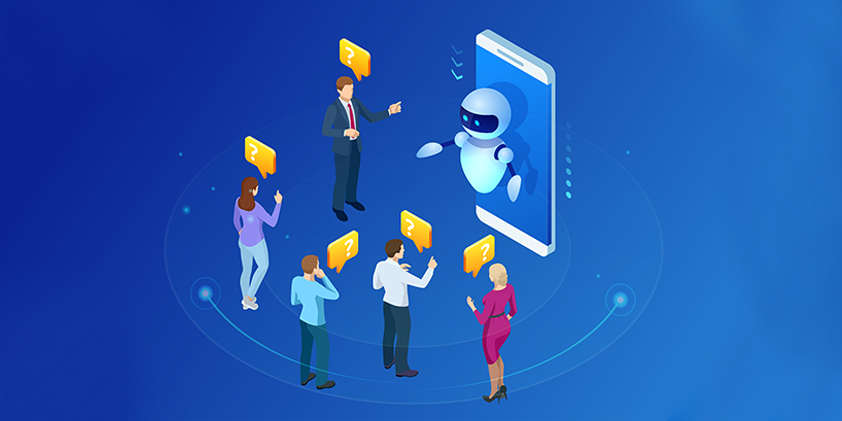
How to prepare for an AI interview
Candidates are advised to prepare for an AI video interview the same way they would for a face-to-face interview. They must know everything there is to know about the company beforehand; look up the company website, Google news, press releases, and understand what the company and the industry are all about.
Candidates can also make a list of questions that they would like to ask their prospective employer. Practice makes perfect when it comes to an AI video interview. Candidates can make a list of expected questions and practice their answers. Once the video interview begins, candidates will not be able to stop, erase, or edit the interview and must, therefore, be prepared well in advance.
On the day of the interview, candidates must dress professionally. Position themselves in a straight-back chair and make sure the camera angle focuses waist up.
Although an AI video interview is recorded, it is for all purposes conducted just as a face-to-face interview would. So, candidates are recommended to sell their candidature based on the company’s needs and let the employer know how they will meaningfully contribute to their organization.
Finally, candidates are asked to keep calm and exude confidence through their body language.
The future of AI interviewing
Recently, a few multinationals like Benz, Cognizant, and Deloitte took bold steps toward AI interviewing. Their huge successes with this unique recruitment process have created storms across the business world, and now other companies are following the suit.
The market for emotion and sentiment analysis is expanding too, and this will encourage newer and more sophisticated developments in the field that will clean up any discrepancies and disadvantages that are currently faced.
There’s nothing new that an AI interview does – it asks the same questions as a human interviewer would. But the deep analysis that goes into the assessment of an interview is beyond human undertaking. The speed, accuracy, and convenience of AI recruitment and AI video interviewing are very valuable as organizations have realized. It’s impossible that AI interviews will go off the grid – if anything else, we will see an increase in its use.
Technological advancements, including artificial intelligence, are making quicker progress than in the past. The process of AI recruitment is going to continue getting smoother than it already is today, and organizations will very soon rely completely on artificial intelligence’s intellectuality to make the best candidate choice for a particular job.
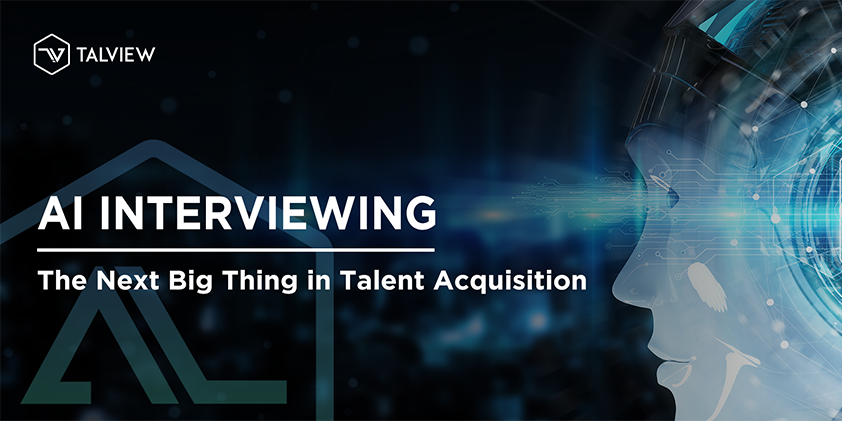






Leave a Reply